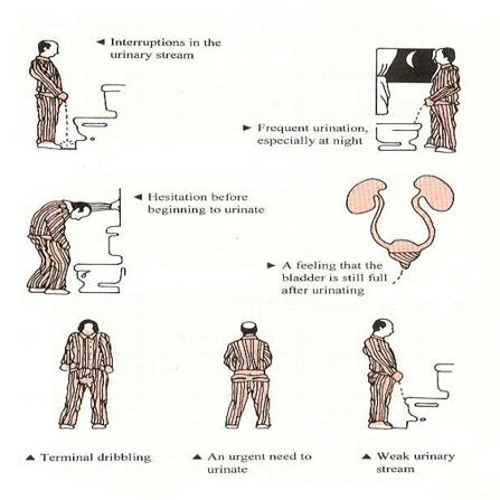 25 February 2011 Last updated at 06:29 ET Share this page PSA tests 'no use alone' in finding prostate cancers
25 February 2011 Last updated at 06:29 ET Share this page PSA tests 'no use alone' in finding prostate cancers
Further concerns have been raised over the reliability of protein testing as an indicator of prostate cancer.
A US study of 5,000 men in the Journal of the National Cancer Institute found even a rapid "doubling time" in prostate specific antigen (PSA) levels was not necessarily linked to cancer.
The researchers said a rise was not a cause for concern if a man's PSA was low, and he had no other symptoms.
UK men can request PSA tests, although there is no screening programme.
The National Screening Committee ruled that out because of concerns about over-diagnosis.
Simply having raised PSA is not a clear sign that a man will have cancer.
It could also be an indication that he has another condition, such as a benign prostate condition or a urinary infection.
In addition, a normal PSA result does not guarantee that a man does not have cancer.
Around 35,000 men are diagnosed with prostate cancer every year in the UK, and 10,000 die from the disease.
‘Stronger evidence’
The researchers from the Memorial Sloan-Kettering Cancer Center gave healthy men aged over 55 annual PSA tests for seven years.
At the end of the study, men not diagnosed with prostate cancer had biopsies.
The researchers found that basing decisions on biopsies on high PSA velocity – a rapid doubling time in their PSA level (ie from three to six) – would lead to a larger number of procedures, with around one in seven men being biopsied – having a tissue sample removed.
They say that while some cancers would be diagnosed, it would also mean a large number of unnecessary biopsies.
Dr Andrew Vickers, who led the study, said: "if a man's PSA has risen rapidly in recent years, there is no cause for concern if his total PSA level is still low and his clinical examination is normal."
Dr Peter Scardino, chair of the Department of Surgery at Memorial Sloan-Kettering, who also worked on the research, said: "We have previously published papers determining that PSA naturally varies from month to month and have urged men whose PSA suddenly rises to wait six weeks and repeat the test before agreeing to a needle biopsy.
"this new study in a large population of men provides even stronger evidence that using changes in PSA as a basis for recommendation for biopsy leads to many more unnecessary biopsies and does not help to find the more aggressive cancers that we want to find and treat."
Emma Malcolm, chief executive of the UK charity Prostate Action, said: "this study's findings are consistent with those of a 2009 European study that showed doubling time is not significant for prostate cancer."
She said a family history of prostate or breast cancer could increase a man's risk, as did being of Afro-Caribbean origin, and that those men should have further investigations if they had raised PSA levels.
However Ms Malcolm added that men in their 50s who did not have those risk factors should simply be aware of the symptoms of prostate problems, including having to go to the toilet a lot in the night, not being able to urinate and feeling the need to empty their bladders but being unable to.